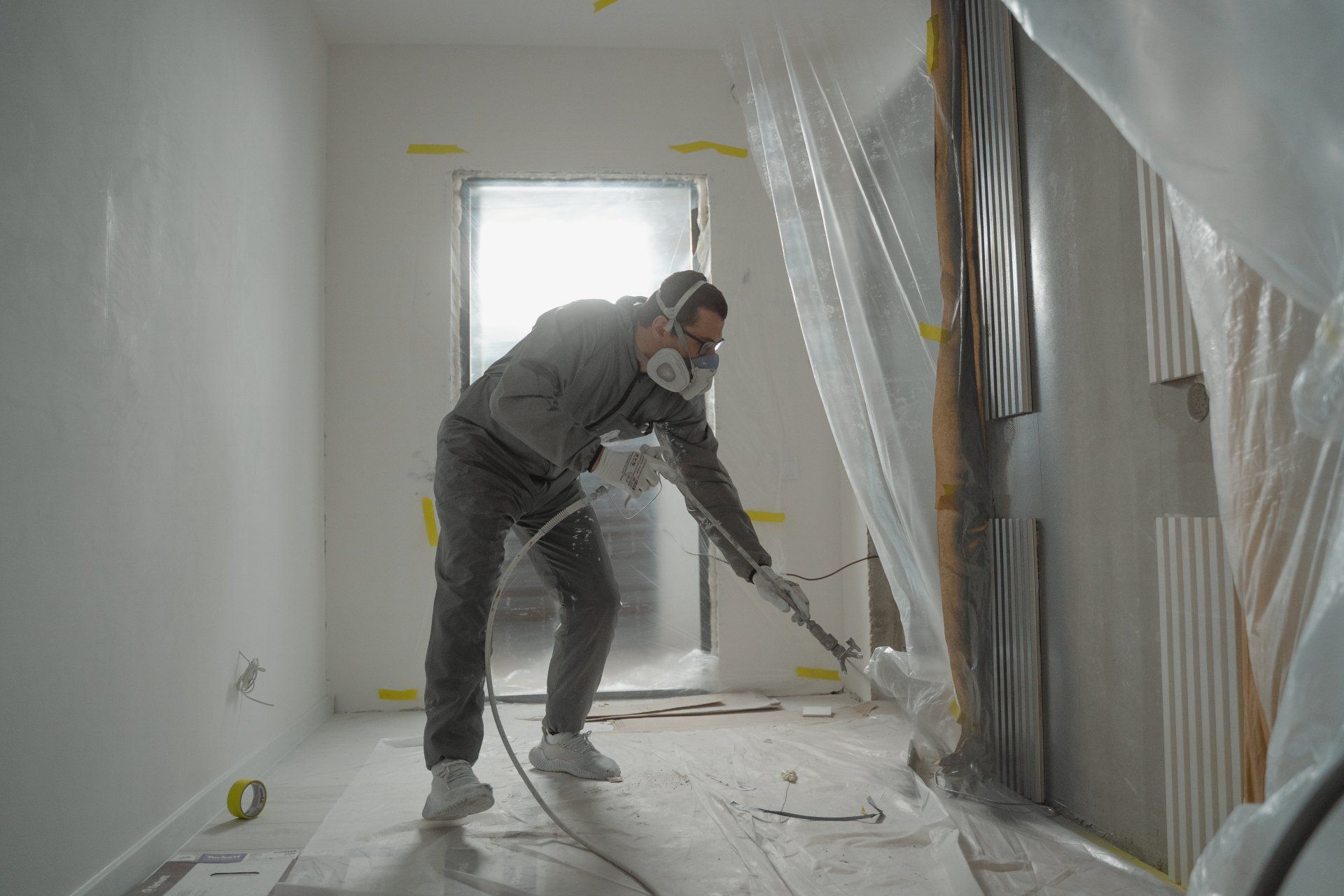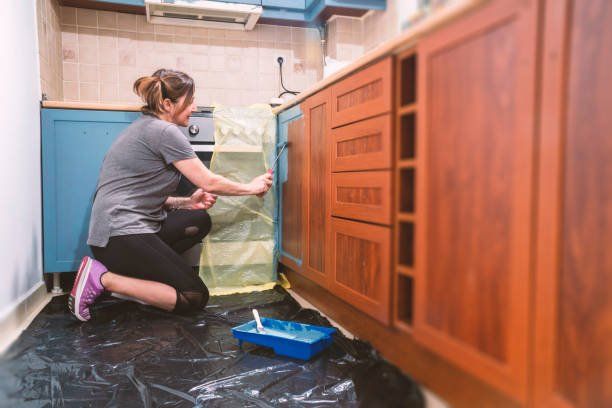Tips For Addressing Common Winter Painting Challenges
Expert Tips Overcoming Winter Painting Obstacles

1. How to Handle Dry Air and Low Humidity During Winter Painting
Winter’s dry air is a double-edged sword for painting projects. While low humidity helps paint dry faster, it can also lead to uneven drying and other complications.
Challenges of Low Humidity:
- Paint can dry too quickly, making it harder to achieve a smooth, even finish.
- Dry air can cause latex paint to lose moisture faster, potentially leading to brush marks or streaks.
Solutions:
- Humidify the Room: Use a humidifier to maintain a balanced humidity level (ideally between 40-50%). This helps the paint cure at a consistent rate.
- Slow Down Drying: If you don’t have a humidifier, you can lightly mist the air with water to add moisture.
- Use Paint Additives: Products like Floetrol can extend the drying time of water-based paints, allowing for smoother application and reducing brush marks.
2. Preventing Common Winter Painting Problems: Cracking and Peeling
Cracking and peeling are common issues that can arise when painting during the winter. These problems often occur due to poor adhesion or extreme temperature fluctuations.
Why Cracking and Peeling Happen:
- Painting over improperly prepared surfaces.
- Applying paint when surfaces are too cold or when temperatures fluctuate dramatically.
- Using low-quality paints that don’t adapt well to changing conditions.
Preventive Measures:
- Proper Surface Preparation: Always clean, sand, and prime surfaces before painting to ensure good adhesion.
- Maintain Stable Temperatures: Keep the room temperature between 50°F and 85°F. Avoid painting in areas that experience drafts or extreme temperature shifts, such as near exterior doors or poorly insulated walls.
- Choose High-Quality Paints: Use paints specifically designed for indoor winter conditions, which tend to have better flexibility and adhesion properties.
3. Tips for Storing Paint Properly During Freezing Temperatures
Paint storage is critical during the winter months. Exposure to freezing temperatures can ruin the consistency and effectiveness of paint, leading to wasted materials and additional costs.
The Risks of Freezing Temperatures:
- Latex paint can freeze, causing separation and clumping. Once this happens, it’s often impossible to restore the paint’s original quality.
- Freezing temperatures can also compromise the integrity of paint cans, leading to rust or leaks.
Proper Paint Storage Tips:
- Keep Paint Indoors: Store paint in a climate-controlled area, such as a basement, heated garage, or utility room, where temperatures stay above freezing.
- Seal Paint Cans Tightly: Ensure the lid is securely sealed to prevent air from getting in. You can place a plastic wrap under the lid for an extra layer of protection.
- Store Cans Upside Down: This creates an airtight seal around the lid, reducing the chance of air or moisture entering the can.
- Check Stored Paint Regularly: Periodically inspect your stored paint for signs of freezing or separation. If the paint appears clumpy or doesn’t mix smoothly, it may be unusable.
Winter painting projects can yield stunning results, but they require a strategic approach to overcome seasonal challenges. By managing dry air, preventing cracking and peeling, and properly storing your paint, you’ll ensure a smooth, long-lasting finish. Whether you’re refreshing a single room or tackling an entire home makeover, these tips will help you navigate the unique demands of winter painting.
Need professional help with your winter painting projects? Our experienced team is here to ensure flawless results, no matter the season. Contact Peninsula Painting Services today to schedule your next project!
You might also like
Book A Service Today



